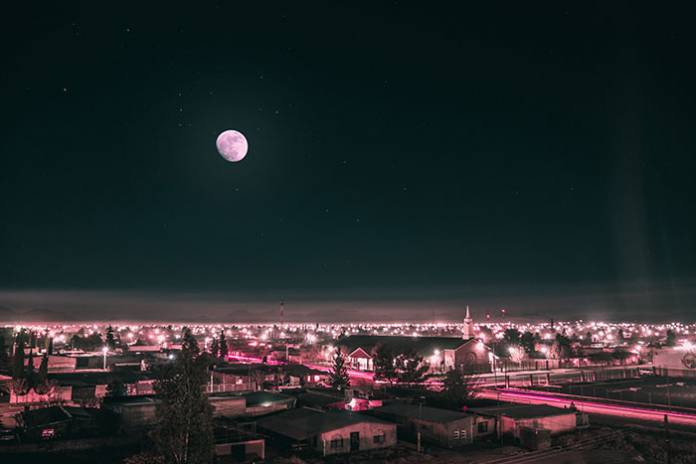
One of the major supermoons of this year will be sighted for three days this month. Also known as the full pink moon, the supermoon will be sighted from Monday, April 6 to Wednesday, April 8; but the supermoon will be most obvious and at its biggest on Tuesday, April 7. The moon got its “pink” fame from the shrub-like wild phlox that covers the ground during spring when the moon appears every April.
This is not the only supermoon to occur this year, and it is in fact the second of three to occur. The phenomenon is special because the moon appears 14% bigger and 30% brighter than its normal size. The reason for the unusual largeness and brightness is because the moon is closest to the Earth in its orbit than at other times of the year.
In the Portland area of Oregon, the full moon will be seen rising in April at precisely 7:35 p.m. and in the Phoenix area of Arizona, it will be seen on April 6 at exactly 5:31 p.m. The exact time of its appearance will differ from place to place, and moon watchers may contact their local meteorological office for exact time periods.
There is no point using a telescope to view the moon as it rises behind neighborhood trees and landmark buildings because it can be seen with the naked eyes in all its glory.
“It’s one of the easiest astronomical phenomenons to see. All you have to do is look outside,” said Kevin Schindler, a historian at Lowell Observatory in Flagstaff. “It’s a real simple thing, but it’s fun to see.”
Jim Todd of OMSI in Portland explained that full moons occur in the middle of the lunar cycle of 29.5 days when the orbit of the celestial body brings it closer to Earth at approximately 225,744 miles away (apogee). At other times it gets farther away from our Earth at an average of 251,966 miles (perigee).
“On average, the distance from the earth to the moon is about 238,855 miles,” Todd said. “During every 27-day orbit around Earth, the Moon reaches both its apogee and perigee.”
Full Pink Moon is also known as Egg Moon or Grass Moon.
Source: azcentral.com











